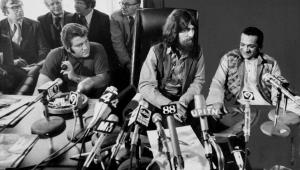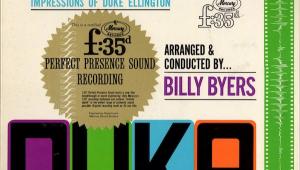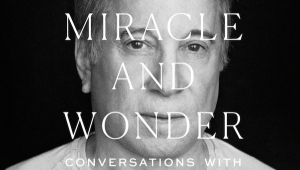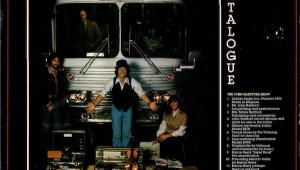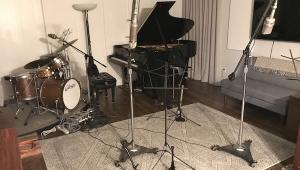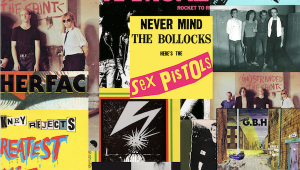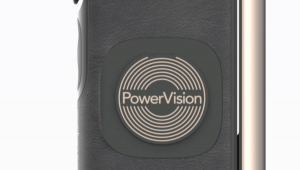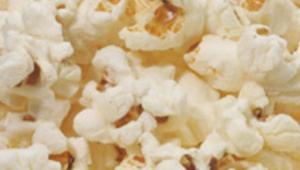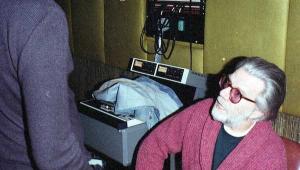Ry Cooder Scores!
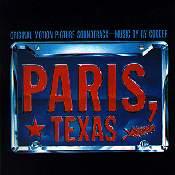
Beginning with his eponymous 1970 debut, and continuing throughout eleven Warner Brothers solo albums, Ry Cooder has demonstrated that in addition to being an extraordinary folk/blues guitarist- particularly on bottleneck, and a serviceable, though hardly distinguished vocalist, he is also a high caliber musicologist and A&R man. While Cooder’s specialty has been mining the more obscure tributaries of the rich vein of American music deposited during the Great Depression, he has also unearthed musical riches from around the world, particularly the Caribbean and Mexico.
His solo albums are sprinkled with unknown and out-of-the-way delights like Dickey Doo's "Teardrops Will Fall" and the calypso "F.D.R. In Trinidad"- as well as some better known songs like "One Meat Ball", Woody Guthrie’s "Vigilante Man" Huddie Ledbetter's "Teardrops Will Fall", The Drifter’s 1954 hit "Money Honey", and Johnny Cash’s "Hey Porter".
Rather than simply reconstructing the originals, Cooder has taken the material and molded it to fit his own musical vision. While these transformations have gotten him into trouble with some purists, they've resulted in many intriguing hybrids like his controversial Jazz album which some critics dismissed for it's somewhat stiff renditions of early classics.
Early in his career, Cooder’s virtuosity attracted the attention of both the public and fellow musicians. At 17, the Southern California native, was a member of The Rising Sons which also included Taj Mahal. According to those in attendance, his playing stole the show at The Trip on Sunset Blvd.- one of L.A.’s premier sixties rock clubs. After the band broke up, Cooder began doing session work. He can be heard on Taj Mahal’s debut, Paul Revere and The Raiders’ Revolution album, and Captain Beefheart’s Safe As Milk.
In the late sixties, Warner Brothers signed Cooder and put him to work playing on albums by the label’s other artists- Randy Newman, Ron Nagle, Harpers Bizarre, Ron Elliot, and Gordon Lightfoot among them. One of Cooder’s most memorable turns during this period was his slide playing on the Performance soundtrack ( WB BS 2554 ).
When it came time to record his first solo album, musicians like The Flying Burrito Brothers' Chris Ethridge, Little Feat's Ritchie Hayward, The Mother’s Roy Estrada and jazz percussionist Milt Holland all jumped on board. Cooder has also gotten support over the years from John Hiatt (actually it was Cooder who supported Hiatt during his lean years) and drummer Jim Keltner. Best of all for audiophiles, most of these albums- particularly the early ones- feature natural, sometimes spectacular sound, courtesy of the always excellent engineer Lee Herschberg.
Another of Cooder’s claims to fame is of course, being ripped off by "The Glimmer Twins" for the tune "Let It Bleed". Cooder had been invited by Jagger/Richards to play mandolin on "Love In Vain". And so the story goes, the Stones so "enjoyed" Cooder's studio warm up, they secretly recorded it- even asking the naive Southern Californian to keep "warming up" while they got the recording equipment set up. Apocryphal? Maybe, but it makes for good legend.
Cooder also has the dubious distinction of releasing the first commercial digital rock recording, 1979's Bop Till You Drop , which yours truly, having read the hype in Stereo Review, eagerly waited for outside a Southern California record store on release day- 10:00 AM. I drove home, and with hands trembling placed the digital biscuit on my turntable. I had only great expectations, having not yet been corrupted by "digiphobes".
About a minute into "Little Sister", the opening track, I knew if this caught on, recorded music would be in big trouble. And the recording was done on the old 3M system which samples at 50kHz and is considered by many engineers (Roy Halee, Shawn Murphy, Glenn Meadows) to be good sounding digital. It didn’t take long for the excuses to start: "well, you’re not hearing it pure digital. You’ll have to wait for digital discs to really hear how good it is." Reduced to 44.1K, it obviously sounds even worse.
But back to the music: Cooder’s ability to paint intense, dramatic pictures with his guitar was evident from the start. You needn’t have known the title of the final track on his debut, Blind Willie Johnson’s "Dark Is The Night” to see and feel what the song is about.
So it was only natural that Cooder would eventually try his hand at soundtracks, though in all fairness to the great film composers, I wouldn’t call what he does "scoring". In the traditional sense of the term, the composer not only sharpens and helps define a scene's mood , he or she intensifies the action with musical accents-as in fight scenes, or car chases. Cooder doesn't do this, partly because he's not a composer in the sense that John Barry or John Williams or Bernard Herrmann is a composer, or Danny Elfman for that matter, who owes much of his inspiration to Herrmann.
Cooder has written and produced at least eleven soundtracks, combining all of his talents: writing, A&R, producing, arranging, playing and occasionally singing.
Original music soundtrack albums- particularly for modestly budgeted films- are frequently low cost, quicky affairs, performed "live" in the studio. The result of this "seat of the pants" approach can be musical spontaneity frequently missing in more costly high-tech scores, and of course, better sound. In fact, Cooder's low budget soundtrack albums sound more naturally convincing than his later, more costly, solo albums.
Here are the soundtrack albums produced by Cooder, in chronological order:
1) THE LONG RIDERS: Original Soundtrack. [ Lee Herschberg (engineer).] Warner Brothers HS 3448. LP (1980).
2) SOUTHERN COMFORT: (unreleased) 1981
3) THE BORDER: Music From The Original Motion Picture Soundtrack. [ Allen Sides (engineer).] Backstreet (MCA) BSR 6105. LP (1981)
4) PARIS, TEXAS: Original Motion Picture Sound Track. [Allen Sides, Mark Ettel (engineers).] Warner Brothers 25270-1 LP. (1984)
5)STREETS OF FIRE: (unreleased).
6) ALAMO BAY: Music From The Motion Picture Alamo Bay. [Mark Ettel, Allen Sides (engineers).] Slash (distributed by Warner Brothers) 25311-1 LP. (1985)
7) BLUE CITY: Motion Picture Soundtrack. [ Mark Ettel (engineer).] Warner Brothers 25386-1. LP (1986)
8) CROSSROADS: Original Motion Picture Soundtrack. [Mark Ettel (engineer).] Warner Brothers 25399-1 LP. (1986)
9) JOHNNY HANDSOME: Original Motion Picture Soundtrack. [Larry Hirsch (engineer).] Warner Brothers 25996-1 LP (1989)
10) TRESPASS: Original Motion Picture Soundtrack. [Allen Sides (engineer).] Warner Brothers 45220 CD (1992)
11) GERONIMO: AN AMERICAN LEGEND: Original Motion Picture Soundtrack. Columbia 57760 CD (1993)
"The Long Riders" is director Walter Hill’s telling of the Jesse James legend, starring the Carradine brothers, David, Keith and Robert, the Keach brothers James and Stacy, and the Quaid brothers, Randy and Dennis. Cute casting eh? I haven’t seen the movie, but Cooder’s track, containing both reworkings of traditional tunes of the era and evocative originals, sketches a colorful musical picture of the old west and evokes the saloons where music of the era was frequently heard.
The "Long Riders Theme" written by Cooder and orchestrated for dulcimer, harmonium, piano, bass, banjo, fiddle, mandolin, and percussion, features Ry’s strong picking in front of the other instruments. The regal sounding theme sets an almost incongruous tone to a movie about gangsters, but that’s probably necessary if the audience is to have any sympathy for the characters.
"I’m A Good Old Rebel" a traditional tune arranged and sung by Mitch Greenhill (I’m unfamiliar with him) casts the defiance of the gang in no uncertain terms. Cooder has done his research and come up with some wonderful old tunes, including "Seneca Square Dance", "Hold To God’s Unchanging Hand" and "Rally Round The Flag", sung by Pico Payne.
David Lindley contributes a number of tunes as well, and plays strong banjo, mandolin, fiddle and guitar throughout the album. Ry does a typically dry vocal turn on Neil Morris" well known folk song "Jesse James".
This is a satisfying soundtrack album- one you can listen to and enjoy without having seen the movie. Lee Herschberg has done his usual fine job with the sound. The basic tracks were probably recorded live, with overdubs for a variety of instruments (Lindley is credited as playing banjo, mandolin and fiddle on one tune). While there is a minimum of studio tricks and a nice, wide stage with some depth and natural instrumental timbre, the overall sound is somewhat dry and airless, with a noticeable lack of extension at the very top. Nonetheless this is a dynamic recording and with it's great mix of acoustic instruments, makes for good listening.
"The Border." starring Jack Nicholson, is one of Cooder’s best tracks- particularly from the production standpoint. The muscial lineup includes Freddy Fender, John Hiatt, Sam "The Sham" Samudio, Bobby King, Willie Greene, Jr., Jim Dickinson, Brenda Patterson, Tim Drummond and Jim Keltner. With a lineup like that you would expect the sparks to fly and they do, particularly on "Skin Game"- a six minute absolute rave up that sounds like an outtake from Sticky Fingers. Hiatt drawls lead, Cooder wraps Keith Richards around his fingers, Dickinson pounds the piano like Nicky Hopkins- the thing just ignites from the opening bar and heats up from there.
There’s plenty of contrast on this album- Fender’s impassioned Roy Orbison like turn on "Across The Borderline", Sam The Sham's moody, out of character (compared to his "Wooly Bully" days anyway) vocalizing on "Palomita" and "No Quiero", and Cooder's short instrumental bridges.
Happily, the Glyn Johns-like dynamic recording matches the music: deep articulate bass, clean, unprocessed top end and overall volumnous soundstage make for fun listening. Recommended just for "Skin Game", but you’ll find much more hear to enjoy for music and sound.
Paris Texas is the Ry Cooder soundtrack album to have, when you’re having only one, both for its spectacular sound and music. Director Wim Wenders' film, written by Sam Shepard about the breakup of a marriage and the destruction of a human spirit, is a splinter of life story with the widest of implications. I’ve seen it five times and will see it five times more at least. Partly for the message, and partly for the brilliant, understated acting of Harry Dean Stanton as the husband of Nastassja Kinski, who loses himself wandering through the desolate Texas desert (I know, why would anybody wander away from Kinski).
Also excellent: Dean Stockwell in what was the "comeback" role which brought him to the attention of Hollywood once again, and Hunter Carson as Stanton’s young son.
Cooder's spare track, recorded in four days so Wenders could take the film to Cannes is performed by just three musicians: Cooder on bottleneck guitar, Jim Dickenson on piano (played with rolls of duct tape- judging by the picture on the back jacket) and David Lindley on an exotic stringed instrument I can’t identify, which looks like an anorexic banjo, played with a violin bow.
The star here is Cooder's shimmering, forsaken bottleneck which will give you goosebumps the size of basketballs and remind you of dozens of television commercial tracks, all of which were lifted just about whole from this groundbreaking soundtrack. Forget those, and concentrate on what Cooder evokes from just a few well placed, insistent notes, and his sensuous bottleneck vibrato modulations.
Background textures by Dickinson will also give you the chills.
Harry Dean Stanton's emotive singing on "Cancion Mixteca" is another highlight on this all too short album- about a half hour's worth, including an eight minute piece of dialogue mostly spoken by Stanton in a scene where he can see his estranged wife from behind a one way mirror. When you hear it, if you haven't already done so, you’ll want to rent the movie. The album ends with another rendition of Blind Willie Johnson’s "Dark Was The Night".
Sonically, this album recorded at Ocean Way by Allen Sides and Mark Ettel, and re-mixed by the later, is spectacular: Cooder's guitar is crystalline and sweet at the same time, and finely focused on a wide billowy expanse of air. Dickinson's rumbling textures growl ominously below. Late night listening that's short, to the point, and unforgettable. Highest recommendation for music and sound. Last seen in sealed in the bins as a budget issue. New or used, it's around, so look for it! Don't expect the CD to get you off, though.
"Alamo Bay ," the late Louis Malle's film about racial tensions (involving Vietnamese immigrant boatmen) in a Gulf coast shrimping community and based on actual events, features another great Cooder soundtrack, filled with glistening bottleneck solos, portentious textures and a magnificent, richly orchestrated main theme featuring piano, organ, bass, sax, violin, cello, koto, biwa, shakuhatchi, harp and of course guitar. There is also a redneck bar band tune "Gooks On Main Street", and a haunting version of a traditional Mexican song "Quatro Vicios" sung by Los Lobos' Cesar Rosas and David Hidalgo.
Another short, sweet, atmospheric Cooder soundtrack, sonically matching Paris Texas - not surprising since it was engineered and mixed mostly by Ettel at Ocean Way. I just recently found my first copy of this. Not common, but worth looking for (the cover features the same chain link fence motif as The Border).
Blue City is one of Ry Cooder's least successful soundtracks. There’s much wrong here including the synthesizer parts by slick studio musicians David Paich and Steve Porcaro (one track is called "Tell Me Something Slick"- and they do) and Cooder’s misplaced emotions in his cover of Johnny Cash's "Don’t Take Your Guns To Town". Where Cash brings drama and excitement to a soap opera of a song, Cooder brings unintentional (I think!) parody.
Despite the problems, the presence of the usual team of strong players, gives the album a few inspired moments and some empty ones. The sound is also spotty, so if you see Blue City in the bins, I'd only buy it if the price is right. The best tracks appear on the Cooder compilation.
Walter Hill was obviously happy with Cooder’s work on "The Long Riders" because he tapped him for the soundtrack to "Crossroads" kind of like "Karate Kid" but about blues instead of martial arts starring Ralph Maccio and Joe Seneca. I had heard good things about the sound of this album from folks whose ears I trusted, and when I finally found an original pressing, I was not disappointed.
Despite the presence of Jim Keltner on drums, Nathan East on bass, Sonny Terry on harmonica and vocalists Bobby King, Terry Evans and Willie Green, Jr., I found some of the blues here- particularly on side one- canned a-la a Levi's 501 commercial- particularly the uptempo title track which has an embarrassing "Day At The Races" quality to it. You can just see Ralph Maccio standing on stage triumphantly playing the blues with all the "colored folks" dancing around him sho’ havin' a good time. I'm guessing since I didn't see the movie.
There are some worthwhile tracks however: "Viola Lee Blues" a chunky instrumental with Cooder wailing on harmonica and George Bohannon blowing a foghorn of a baritone horn for example. Only when Cooder sings does the spell break- it sounds like parody. "See You In Hell, Blind Boy" with Van Dyke Parks on piano and Alan Pasqua on synthesizer is also surprisingly effective, as is Amy Madigan's vocal on "He Made A Woman Out of Me" which sounds as if it could have been taken from one of Eric Clapton’s sludge period albums (Slowhand ) or from Fleetwood Mac's mid-seventies zenith.
The last four tracks on side two, where we finally get to hear Cooder work out on slide with no vocals, is worth the price of admission- particularly the finale-a duet with Sonny Terry . Also worth noting: the stellar back up singing by King, Evans and Green.
Engineer Mark Ettel going for a somewhat distant, reverberant, "authentic" live sound got it in spades. Spatially, the recording is wide open and deep. It almost sounds like a Water Lily Acoustics recording-except for a bit of brightness. If you see a copy in the used bins, its worth getting if just for the last four tracks on side two. But beware of the Columbia Records Club pressing only identifiable by "Manufactured by Columbia House Under License" written in very small print on the back cover right hand corner. It sounds hard, brittle and flat- nothing like the Warner Brothers original.
Johnny Handsome is one of Cooder's most ambitious soundtracks for yet another Walter Hill movie. Cooder hits the keyboards here, sounding heavily influenced by Brian Eno's ambient albums- particularly the opening figure of the title track, which features the unmistakeable horn arrangements of Van Dyke Parks and the stellar percussion work of Jim Keltner.
Cooder leaves himself plenty of room to work out on bottleneck, and he delves into Cajun and New Orleans funk (I guess the movie is set in the Crescent City?) as well as some twang bar twisting ala Angelo Badelamenti’sTwin Peaks soundtrack.
I don’t know what happened to engineer Ettel, but Larry Hirsch can fill most anyone’s shoes these days as the excellent sound here proves. Extremely deep, tight bass, an ultra wide stage, sweet and clean on top- this is another great sounding track. I wouldn’t go out of my way for it, or pay through the nose for a copy, but if you see it on LP, don’t hesitate, you’ll find more than your money's worth here.
On Trespass Cooder could have taken the easy way out and done sampling and hip-hop type stuff, which would have been appropriate for this ghetto 'n drugs movie, which plays out more like a spaghetti western or a martial arts film. Instead, he's created one of his most evocative and interesting soundtrack albums, filled with dark and scary crevices carved from electronically treated acoustic instruments played by Jim Keltner, Cooder and Jon Hassell, whose treated trumpet careens through the cues like an out of control police car.
I haven't seen the flick, which apparently takes place in an abandoned factory. That's what it sounds like. That and the ghost of a long departed giant subway train.
Recorded and mixed by Allen Sides at Ocean Way, this is a full bodied, dynamic disc, with outstanding deep bass, pinpoint imaging, big soundstage and enough interesting stuff going on to keep you entertained through many listens. For some reason Ice-T's name is left off the powerful "King Of The Street". Underrated, and worth checking out. Just don't listen alone late at night- unless you want to scare the shit out of yourself. And turn those subwoofers UP!
I found much of Geronimo too reminiscent of both James Horner (Glory in particular) and Aaron Copland for comfort, though not nearly as accomplished. The most interesting track, "Train To Florida" featuring the didgeree doo like Tuvian throat singers is classic Cooder: mixing disparate genres to create a fascinating, compelling cue which works much better than had he really tried to synthesize Native American music. By remaining ethnically neutral he's much more effective.
- Log in or register to post comments






